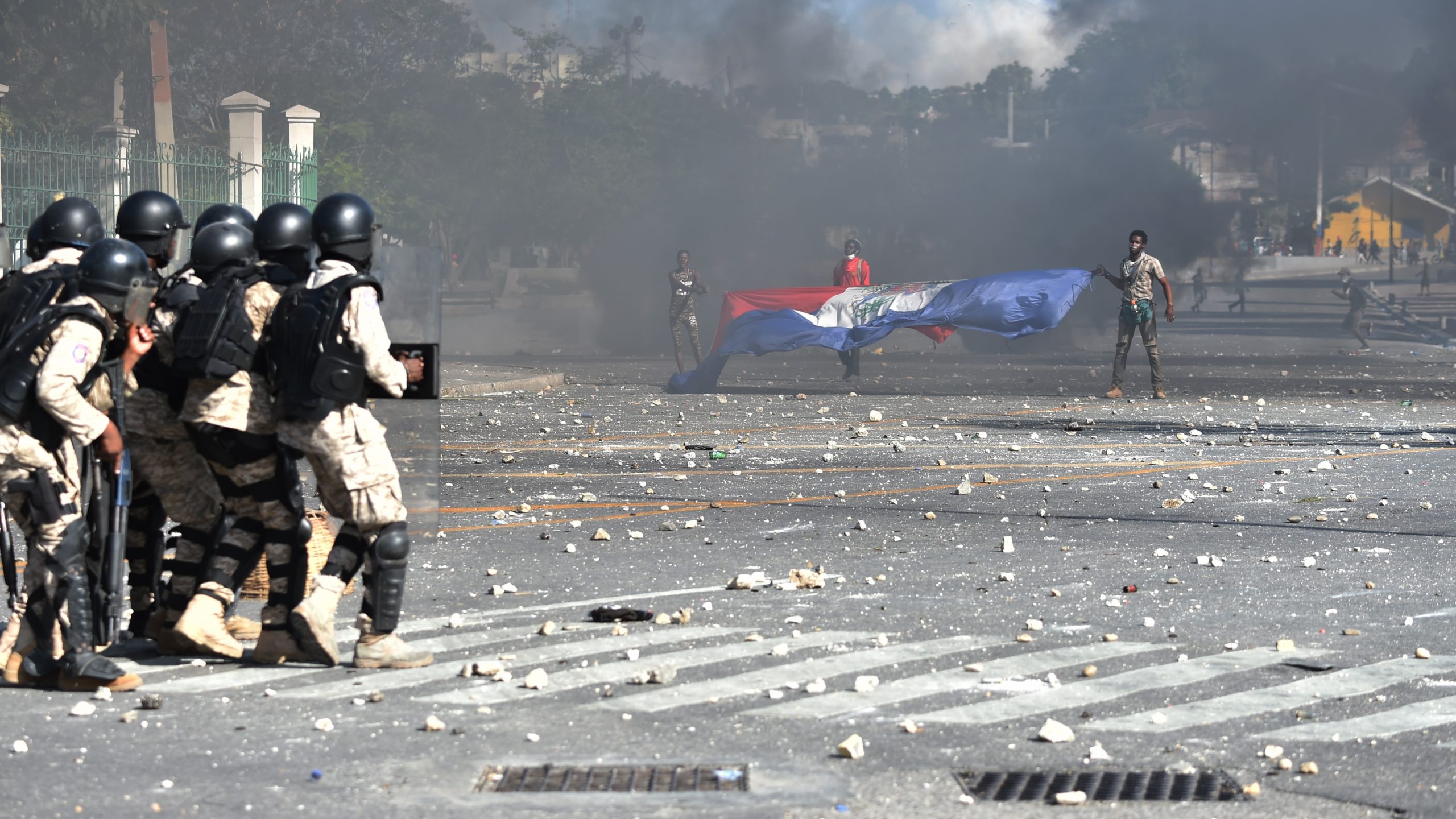RIO DE JANEIRO, BRAZIL – Haiti continues in a state of emergency. The wave of violence by rival gangs and security forces persists.
In addition to the enduring massive protests by large sections of the population against the government of President Jovenel Moïse and against insecurity, employees of the state-run University Hospital are now on strike. Their main complaints are the low and inadequate salary and the difficult working conditions.

Furthermore, supplies such as sterilization materials and equipment such as ambulances, ventilators and hospital beds are lacking. Students and university teaching staff are also taking to the streets and demanding better learning and working conditions from the government. However, the government has been largely paralyzed since the controversial president dissolved the Chamber of Deputies in January to govern by decree. All protests share the demand for Moïses to resign.
However, a reminder from the US State Department and the Organization of American States (OAS) to call for elections as soon as possible has been rejected by the opposition as “interference”. It opposes parliamentary elections for as long as their implementation is controlled by the current president. It demands that he step down immediately and that a transitional government be formed to stabilize the country. The nine-member election committee newly appointed by Moïse is also met with rejection.
Since August this year, rival gangs have been clashing and violent confrontations between gangs and the security forces have been repeated, leaving countless victims, both innocent and members of the opposition.
This is further compounded by the fact that rebellious police officers, who have organized themselves under the name Famtom 509, are also behind the riots. Last weekend they burned vehicles, erected barricades at major traffic intersections and attacked government buildings. They are demanding the release of a detained fellow officer and better working conditions.
Earlier, Famtom 509 succeeded in freeing five detained police officers. They had been arrested after failing to protect the premises of the high-ranking anti-government attorney, Monferrier Dorval. He was murdered two weeks ago in his home’s courtyard. After the murder, Dorval’s house was plundered.
The National Police (ENT) has been the country’s only armed state force since 1994. Early this year, police officers protested for better working conditions and the right to organize a union.
However, President Moïse denounced the violence and declared that he would stop it. After Dorval’s murder, he spoke of a “machinery of insecurity” and “dark forces” and ordered a three-day national mourning period.
While the government claims to want to restore security, non-governmental organizations suspect alliances with organized crime. Pierre Espérance, spokesperson for the Network for the Defense of Human Rights, believes that the authorities are supporting a group known as “Barbecue”, led by a former police officer. The security forces used the gangs “to control the marginalized neighborhoods,” he explained.
In addition to the riots, Haiti is struggling with the devastation and flooding caused by Hurricane Laura in late August.
Persistent high inflation since mid-2019 and drought-related crop losses further undermine the country, where the majority of people live on less than US$2 a day. The population’s plight has been further aggravated since the coronavirus crisis led to many Haitians living abroad losing their jobs and a 20 percent drop in remittances to relatives. These remittances made up approximately 30 percent of the gross domestic product.

